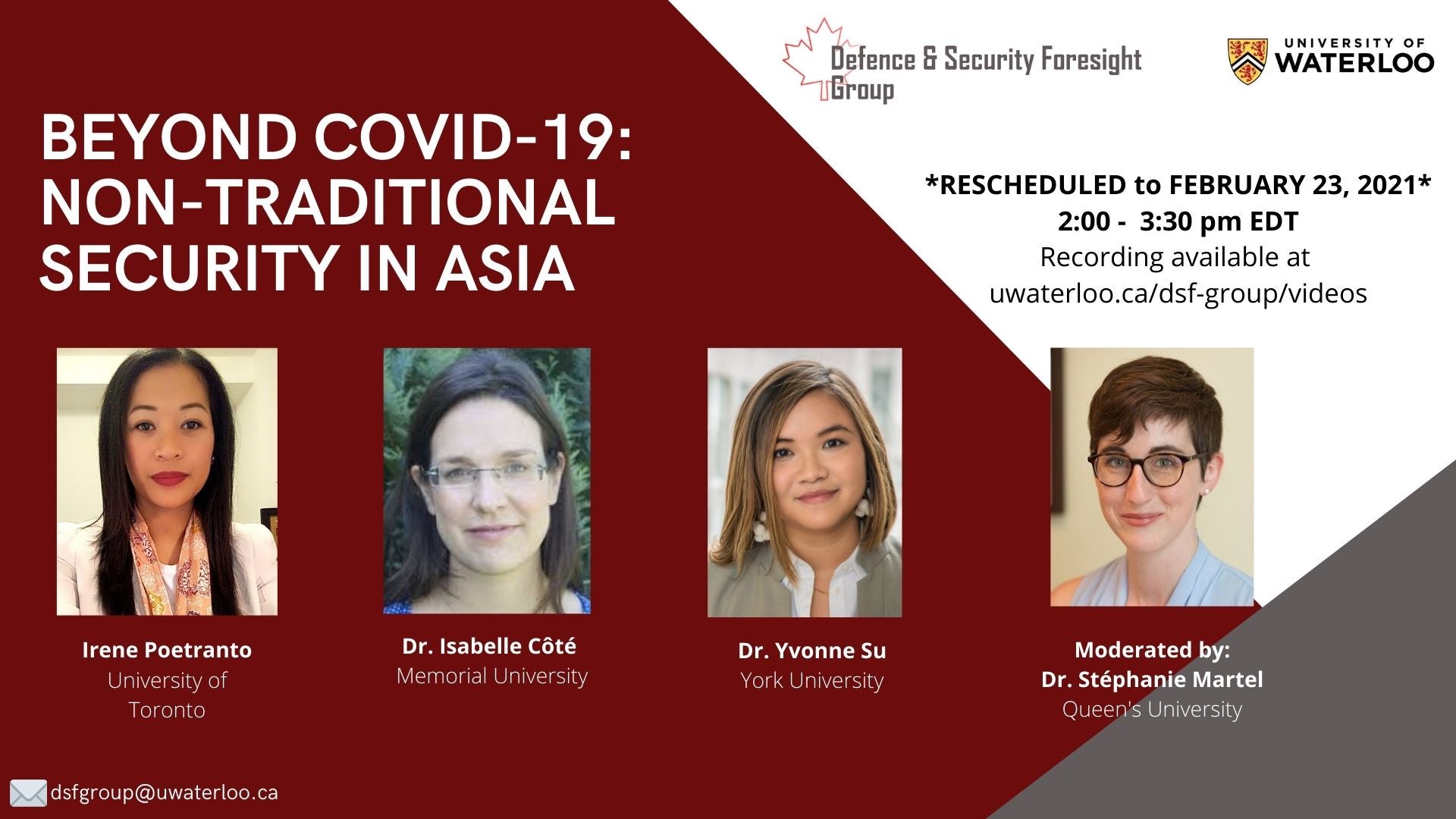
So-called “non-traditional” security concerns, including illicit trafficking, sea piracy, migration, and the like, have in fact been at the forefront of defence and security policy in the Asia-Pacific for many decades. These concerns are central to the agenda of many regional states, multilateral institutions, and bilateral agreements. In recent years, new concerns - such as terrorism and radicalization, cyber, pandemics, environmental disasters, climate change, among others – have been added to the list of more established priorities due to changing circumstances, and evolving security perceptions and priorities.
COVID-19 has also clearly demonstrated that the region’s long-standing preoccupation with the interlinkages between security and other domains of governance is especially relevant, and that it is here to stay. This is despite the fact that non-traditional security issues, while crucial, being still often considered, in some circles, to be secondary to “hard” security concerns pertaining to territorial/maritime inter-state disputes or major power dynamics.
Participants in this seminar will share their expertise on the security implications of specific issues at the core of their research agenda, including migration and demographic change, cyber and information control, as well as climate change. They cover a broad geographical scope, from China to India and through Southeast Asia. Panelists will discuss the implications of these challenges for the region’s defence and security environment, and how they overlap in interesting ways, but also how they have been impacted by the global pandemic, or found new ways to thrive while key actors were otherwise preoccupied.
Panelists
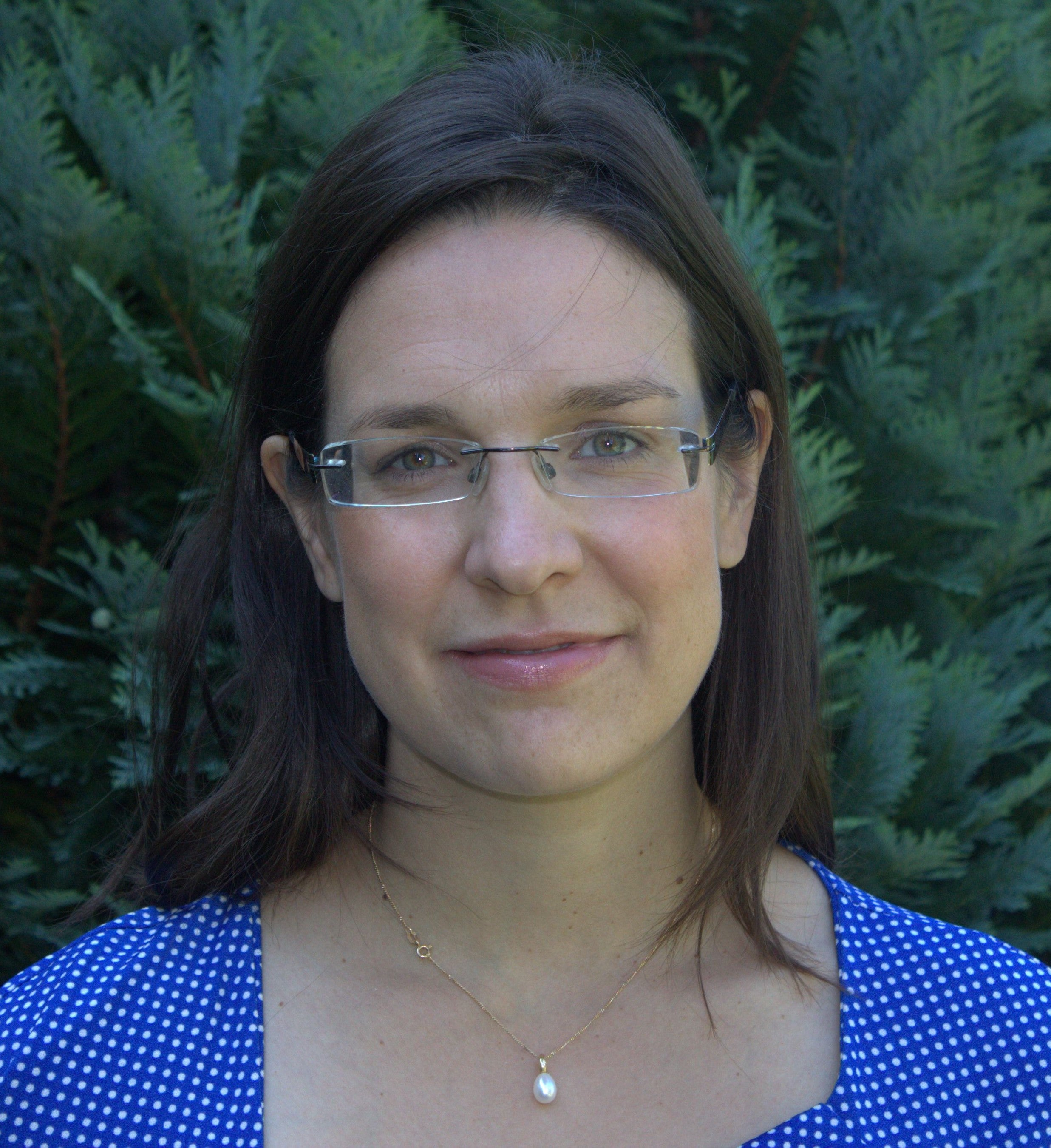
Isabelle Côté, Memorial University
Isabelle Côté is an Associate Professor in the Department of Political Science at Memorial University of Newfoundland. Her research investigates the role of internal population movements on intrastate conflict and contentious politics in East and Southeast Asia. In particular, she investigates the violent clashes between ethnically-distinct native people and internal migrants i.e. Sons of the Soil (SoS) conflict - in authoritarian China and newly democratizing Indonesia. Recently, she has also explored the impacts of political, economic and ecological resettlement programs in Asia, Europe and North America. Her work has been published in numerous journals including, among others, Studies in Conflict and Terrorism (runner up for the 2018 Jill Vickers Prize for best paper on Gender and Politics); Canadian Journal of Political Science; Commonwealth and Politics; Democratization; Ethnopolitics; and has co-edited a volume on Sons of the Soil conflict published with Routledge (2019). She currently serves on the Executive Boards of the Canadian Council of Southeast Asian Studies (CCSEAS) and the ISA-Political Demography and Geography Section, and is a former President of the Atlantic Provinces Political Science Association (APPSA). She received her PhD in Political Science from the University of Toronto, held various guest researcher positions in China and Indonesia, and was a postdoctoral fellow at KITLV (Royal Netherlands Institute of Southeast Asian and Caribbean Studies) in Leiden (Netherlands).
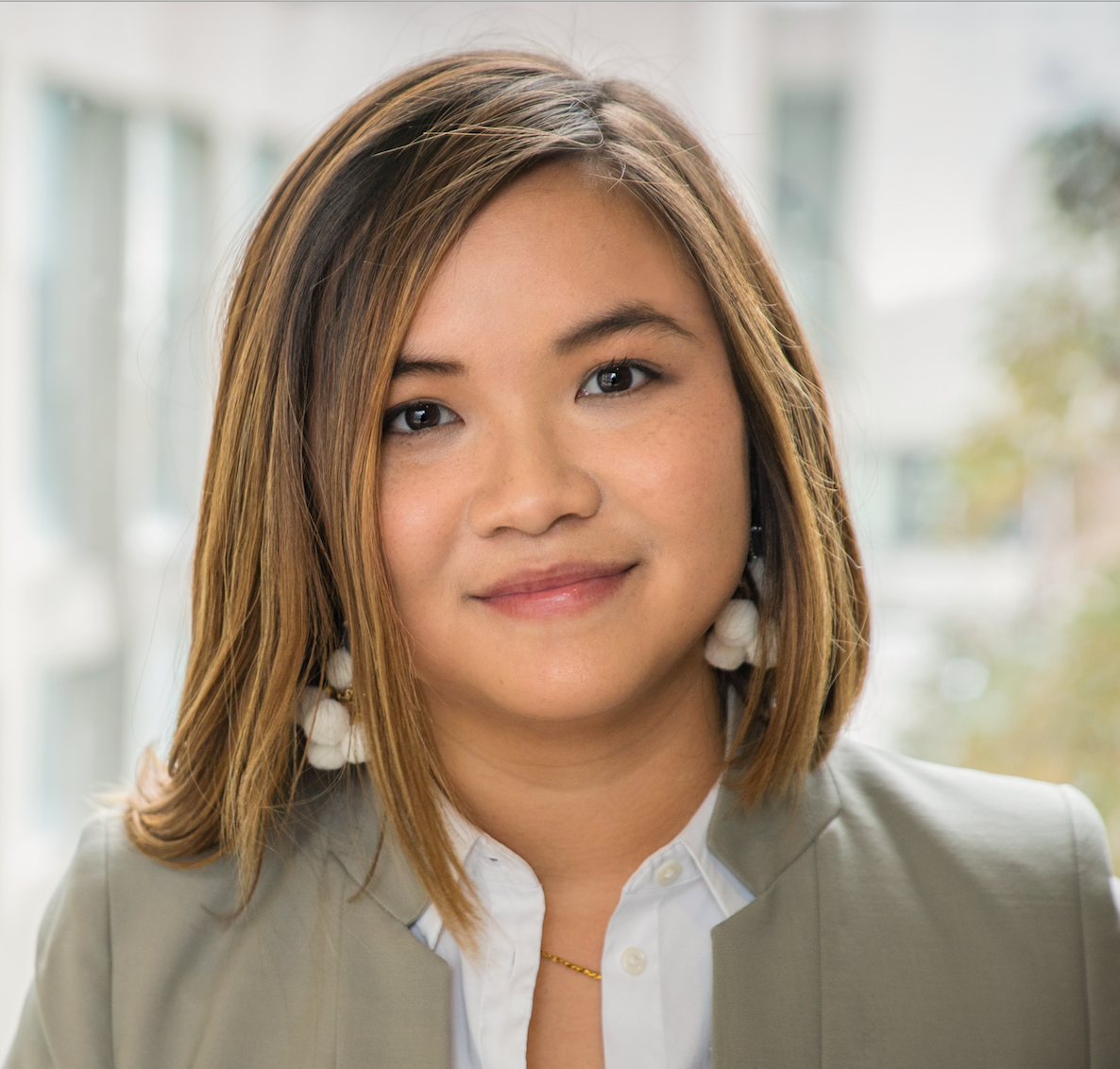
Yvonne Su, York University
Yvonne Su is an Assistant Professor in Interdisciplinary Refugee and Diaspora Studies in the Department of Equity Studies at York University. She is a member of the Centre for Refugee Studies and the York Centre for Asian Research.
Yvonne is a specialist on forced migration, climate change-induced displacement, migrant remittances, social capital, global migration governance, humanitarian assistance and post-disaster recovery. She holds a PhD in Political Science and International Development from the University of Guelph and a Masters in Refugee and Forced Migration Studies from the University of Oxford. For her dissertation, she spent 7 months in the Philippines researching the role of migrant remittances in post-disaster recovery after Typhoon Haiyan.
Currently, Yvonne holds two SSHRC Partnership Engagement Grants - the first to study the impact of COVID-19 on Venezuelan LGBTQI+ asylum seekers in Brazil and the second to study the impact of COVID-19 on disaster-affected households in resettlement areas in Tacloban City, Philippines. She also holds a SSHRC Explore Grant from York University to examine the use of UNHCR Smart Cards in the Rohingya Refugee Camps in Bangladesh.
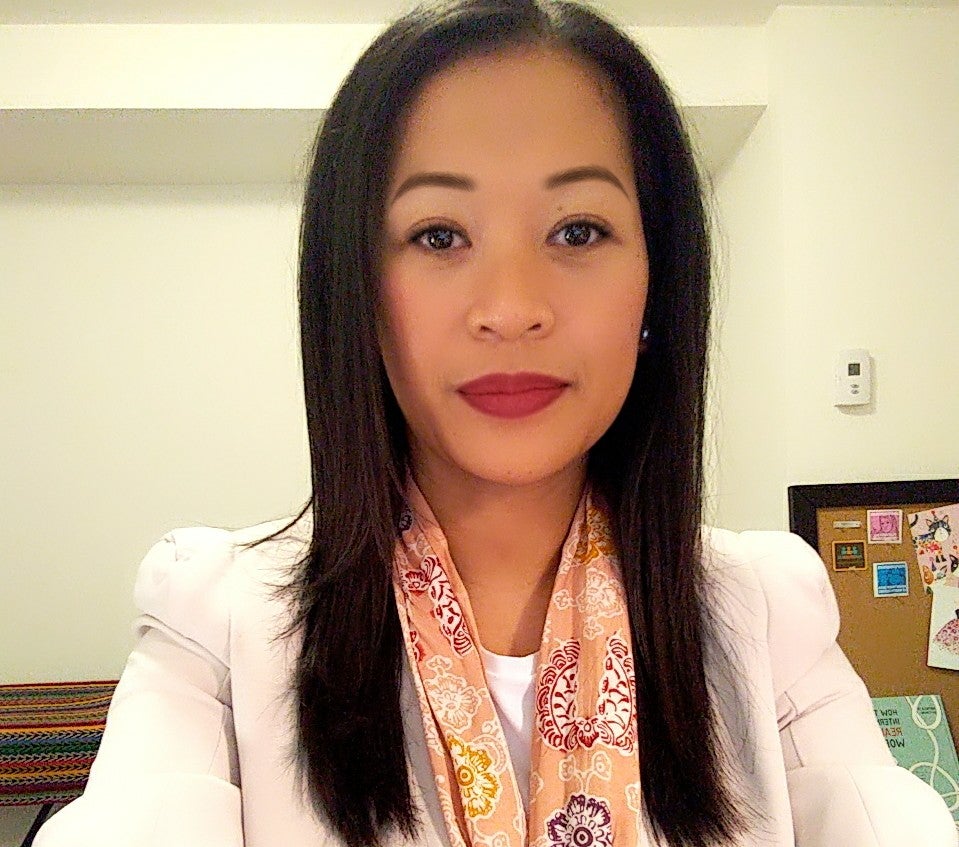
Irene Poetranto, University of Toronto
Irene Poetranto is a doctoral candidate in the Department of Political Science at the University of Toronto, and a Senior Researcher for the Citizen Lab, an interdisciplinary research lab on digital technology and human rights at the Munk School of Global Affairs Public Policy, University of Toronto. She has a Masters degree in Political Science and Asia Pacific Studies from the University of Toronto and a Bachelors degree in Political Science from the University of British Columbia.
Moderator
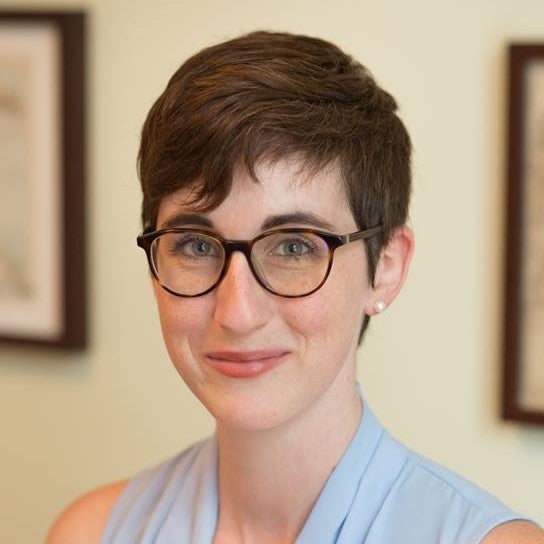
Stéphanie Martel, Queens University
Dr. Stéphanie Martel is an Assistant Professor of Political Studies at Queens University and a fellow at the Centre for International and Defence Policy. Her research at the intersection of international security and global governance is on multilateral diplomacy, security regionalism, and the role of discourse in the social construction of world politics, with a focus on Southeast Asia and the Asia-Pacific. Dr. Martels work has been published in International Studies Quarterly, The Pacific Review, LEspace Politique, and Monde Chinois, among others. She is currently working on a monograph titled Enacting Regional Security in the Asia-Pacific: Discourse in the Making of an ASEAN Community. Dr. Martel acts as a Canadian representative to the ASEAN Regional Forums Experts and Eminent Persons Group, and regularly takes part in policy dialogues on regional security in the Asia-Pacific. She serves on the Executive of the Canadian Council for Southeast Asian Studies, is a member of the Women in International Security (WIIS) Canada, and a member of the Network for Strategic Analysis. Prior to joining Queens, Dr. Martel was a FRQSC Post-doctoral Fellow at the University of British Columbias Institute of Asian Research and the Centre for International Peace and Security Studies (McGill University). She received her Ph.D. in Political Science at the Université de Montréal.